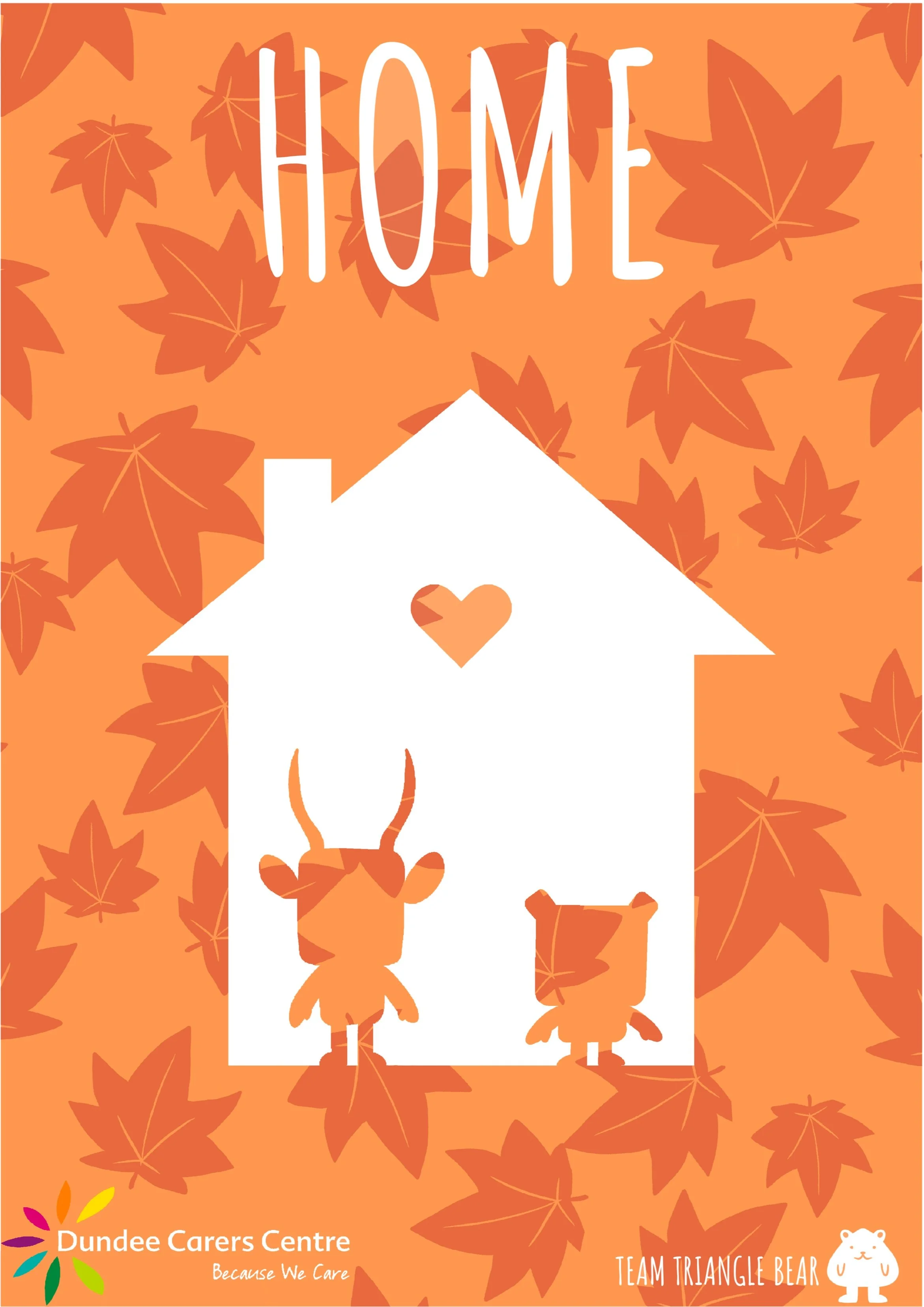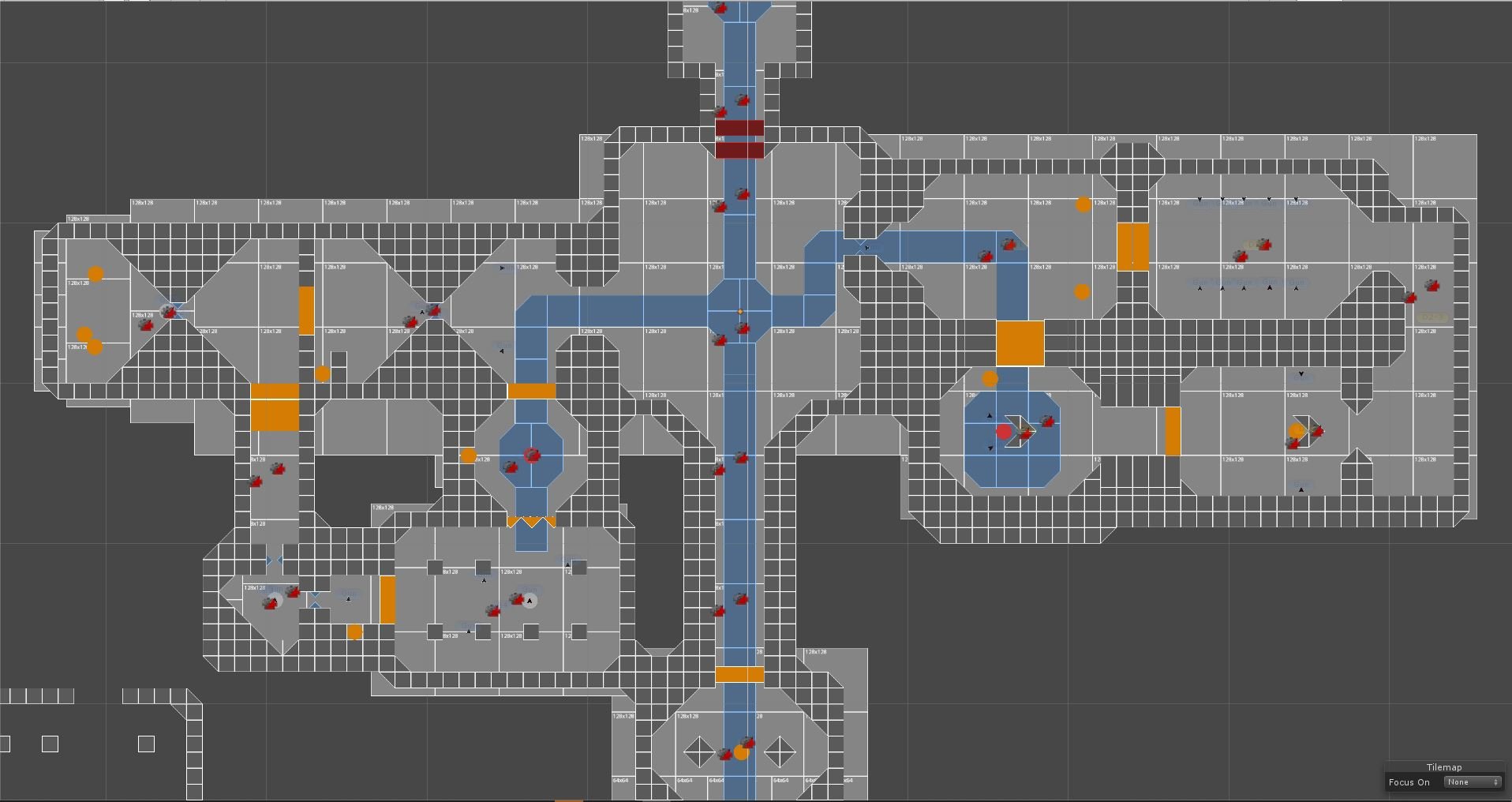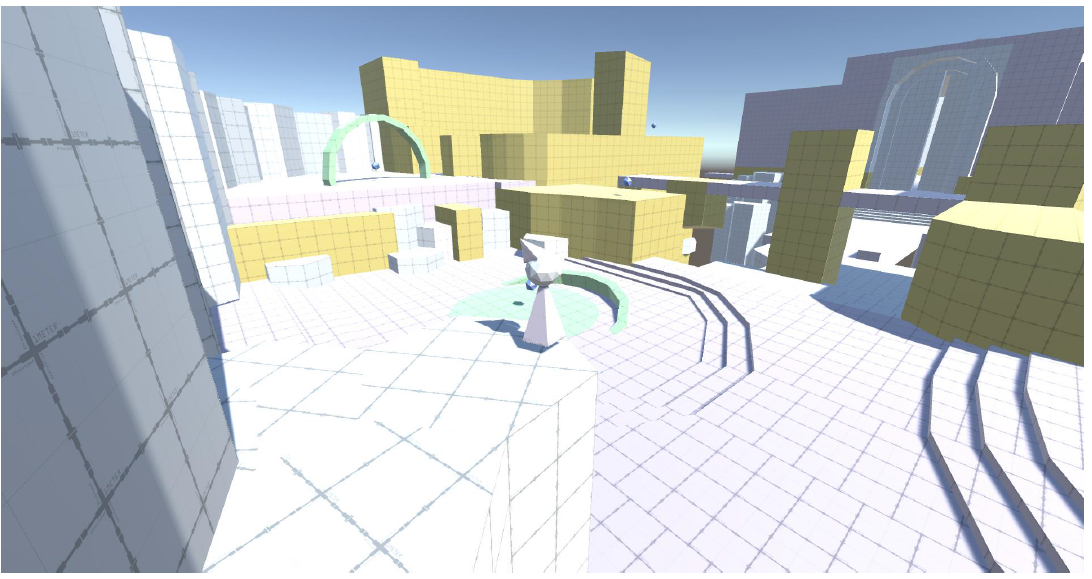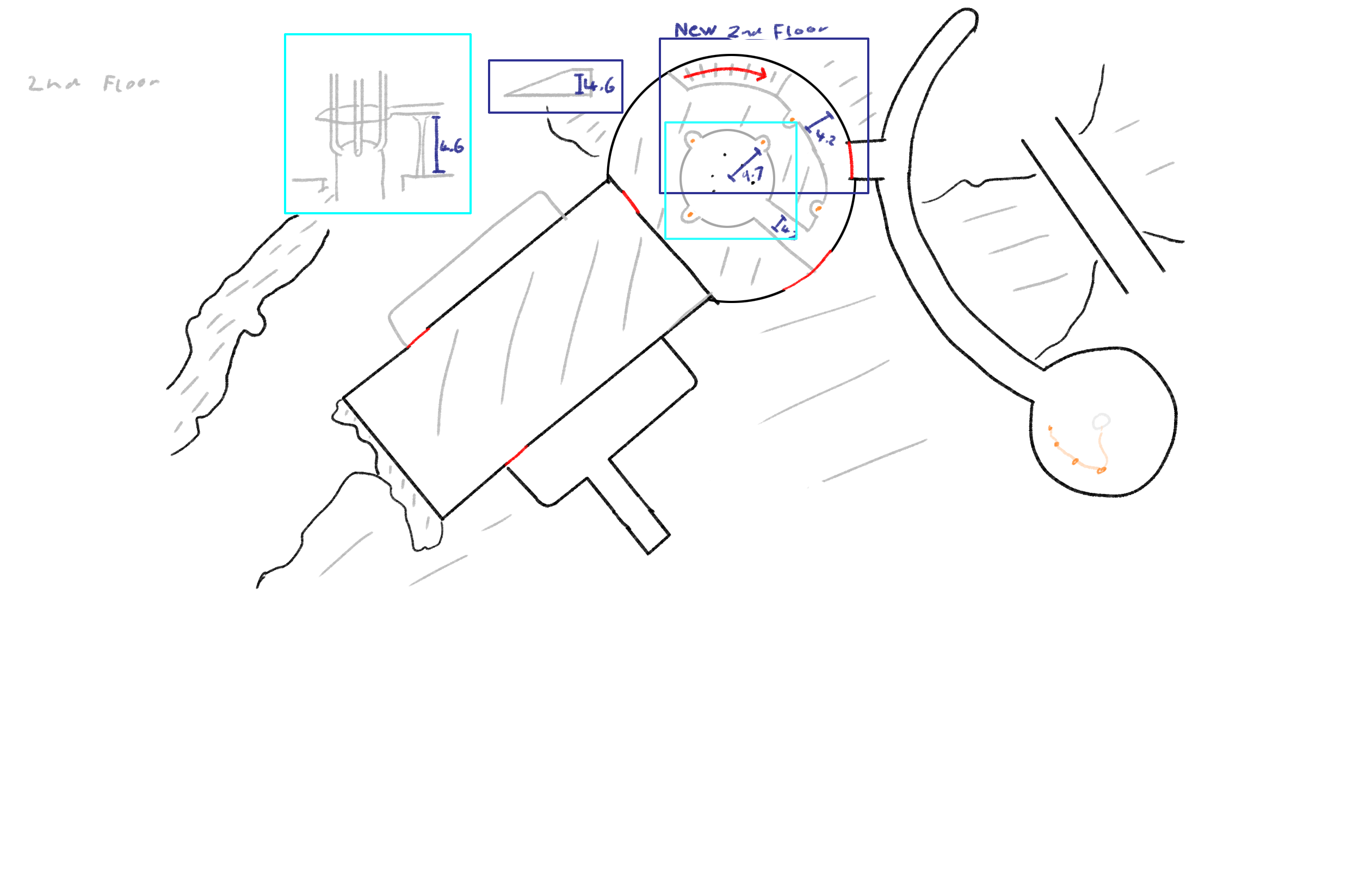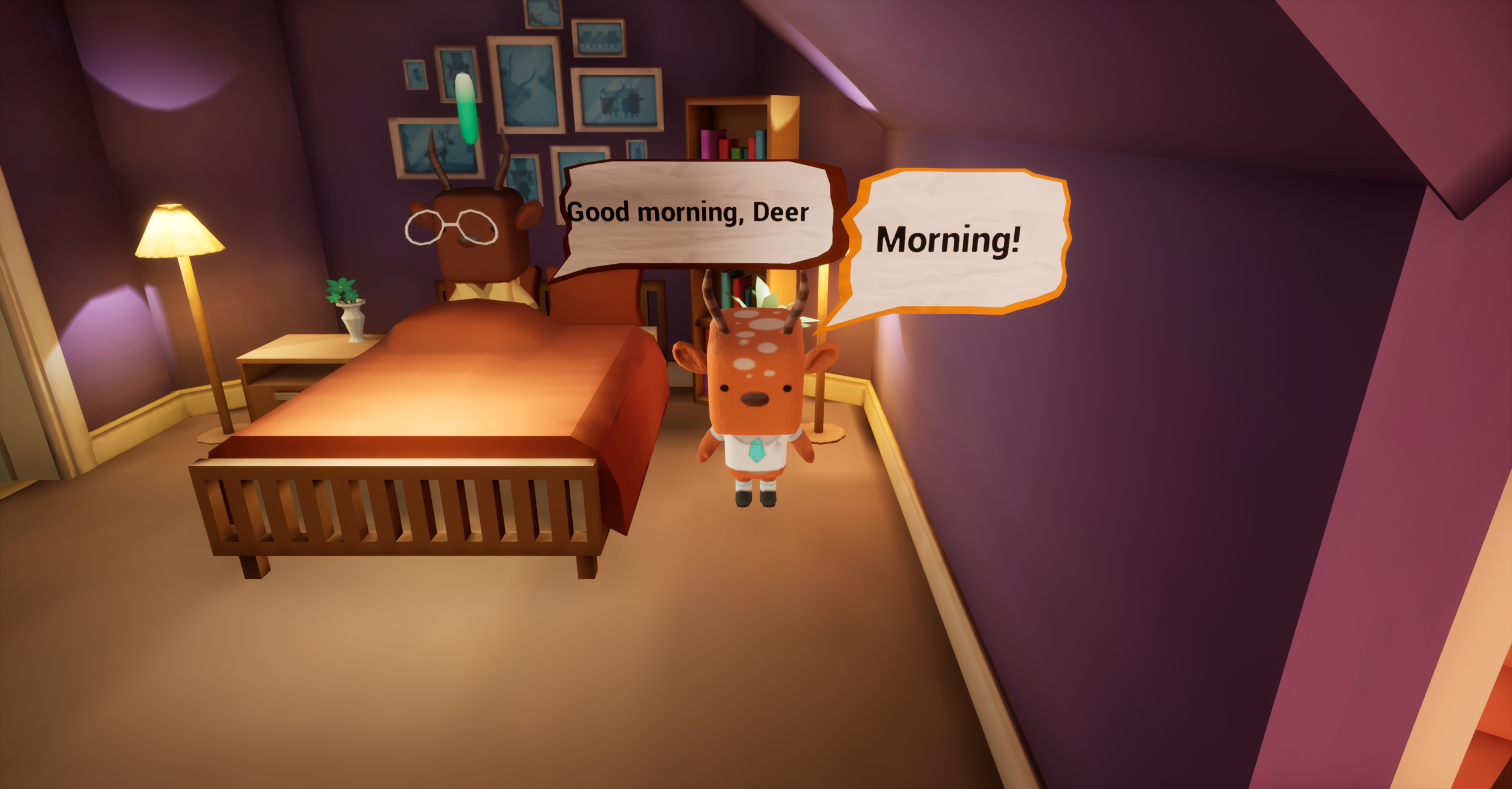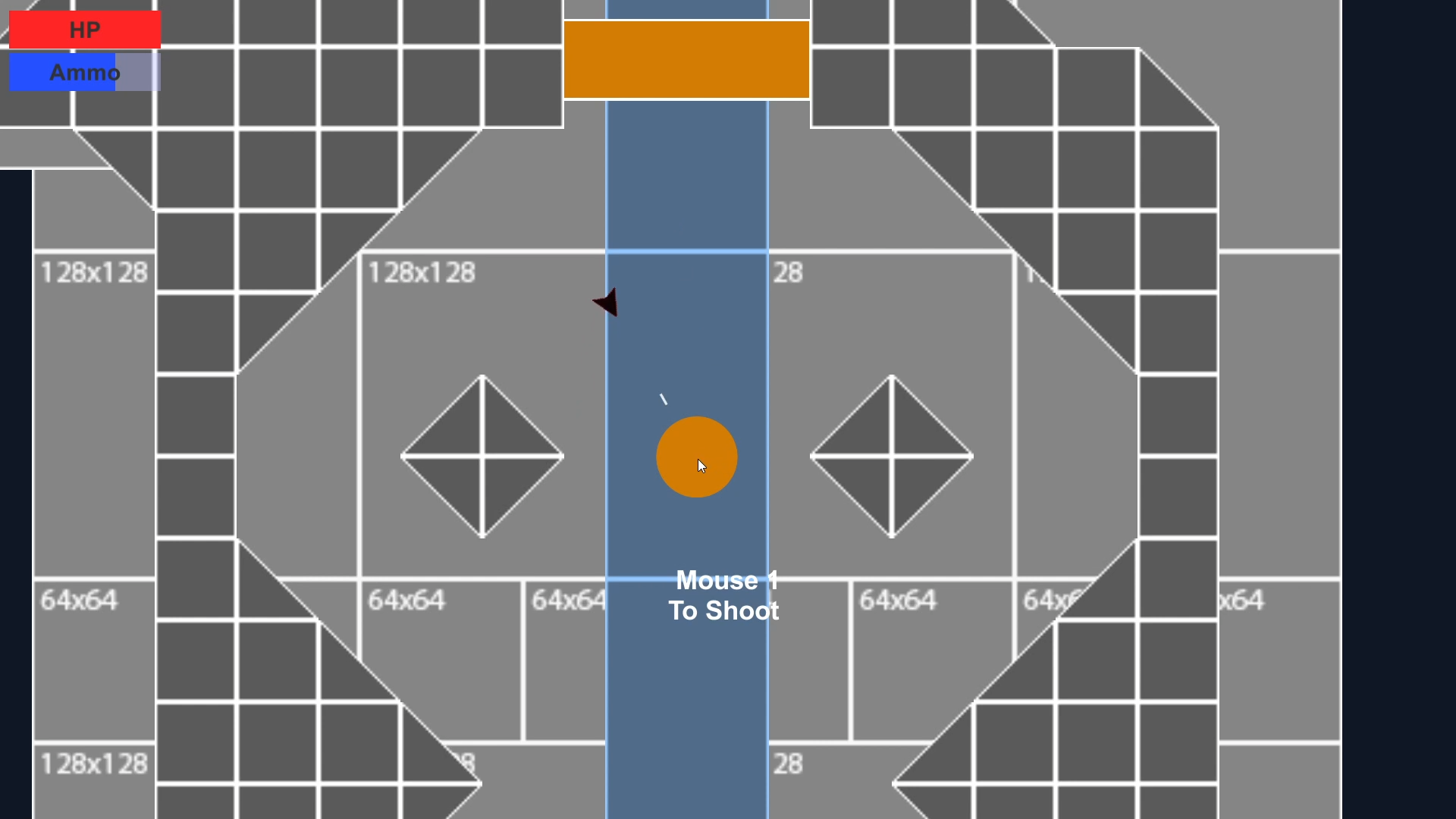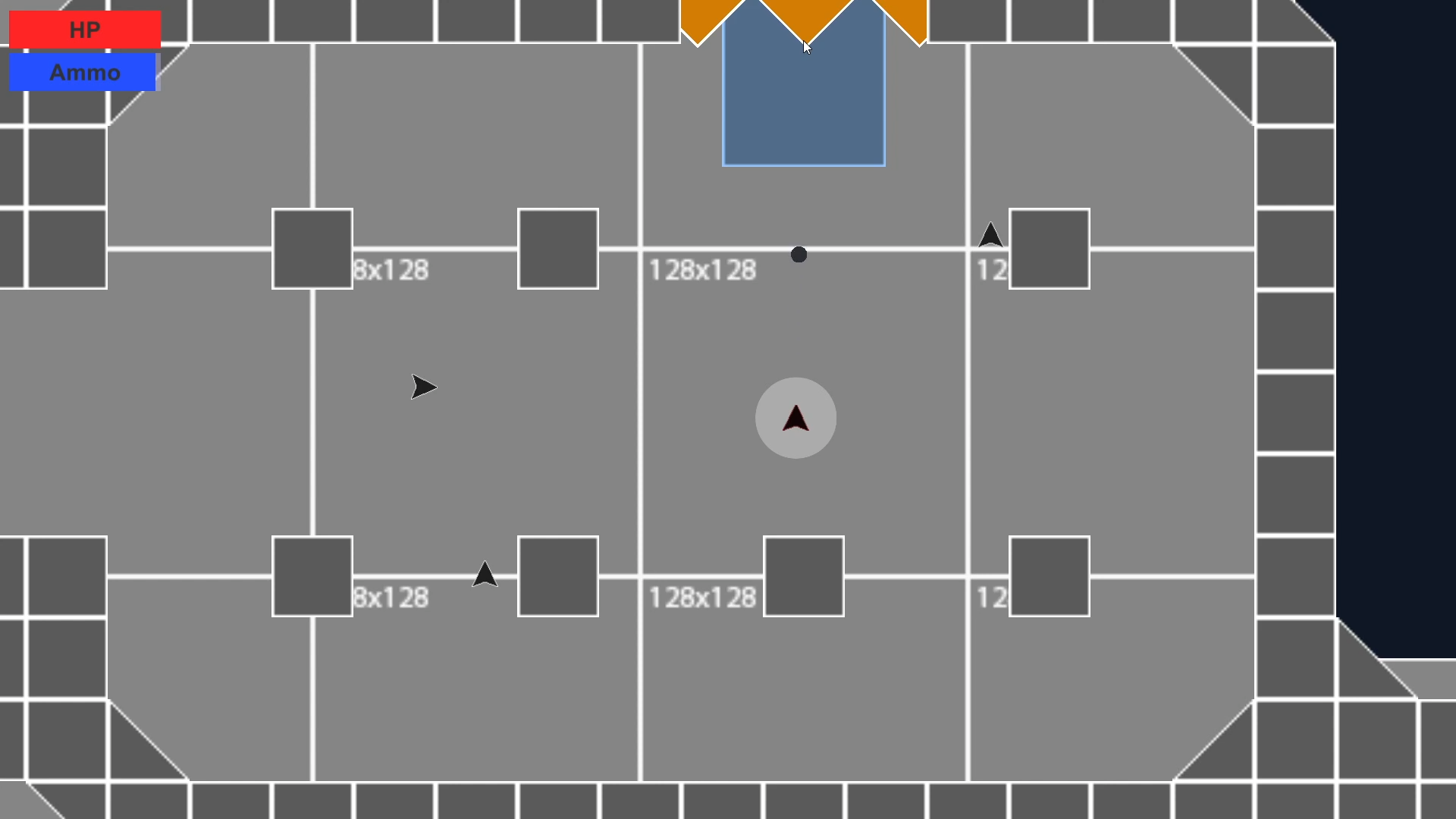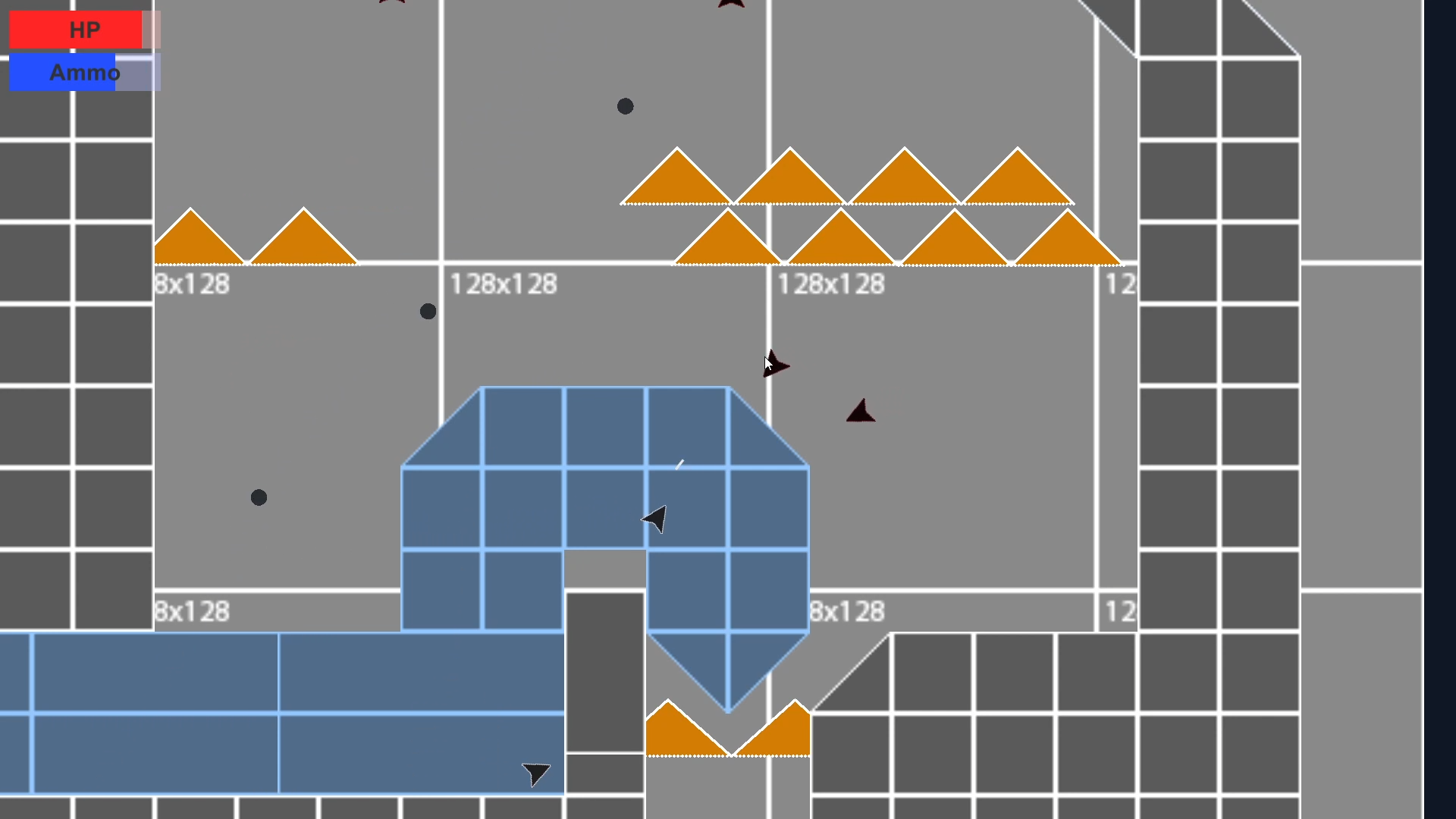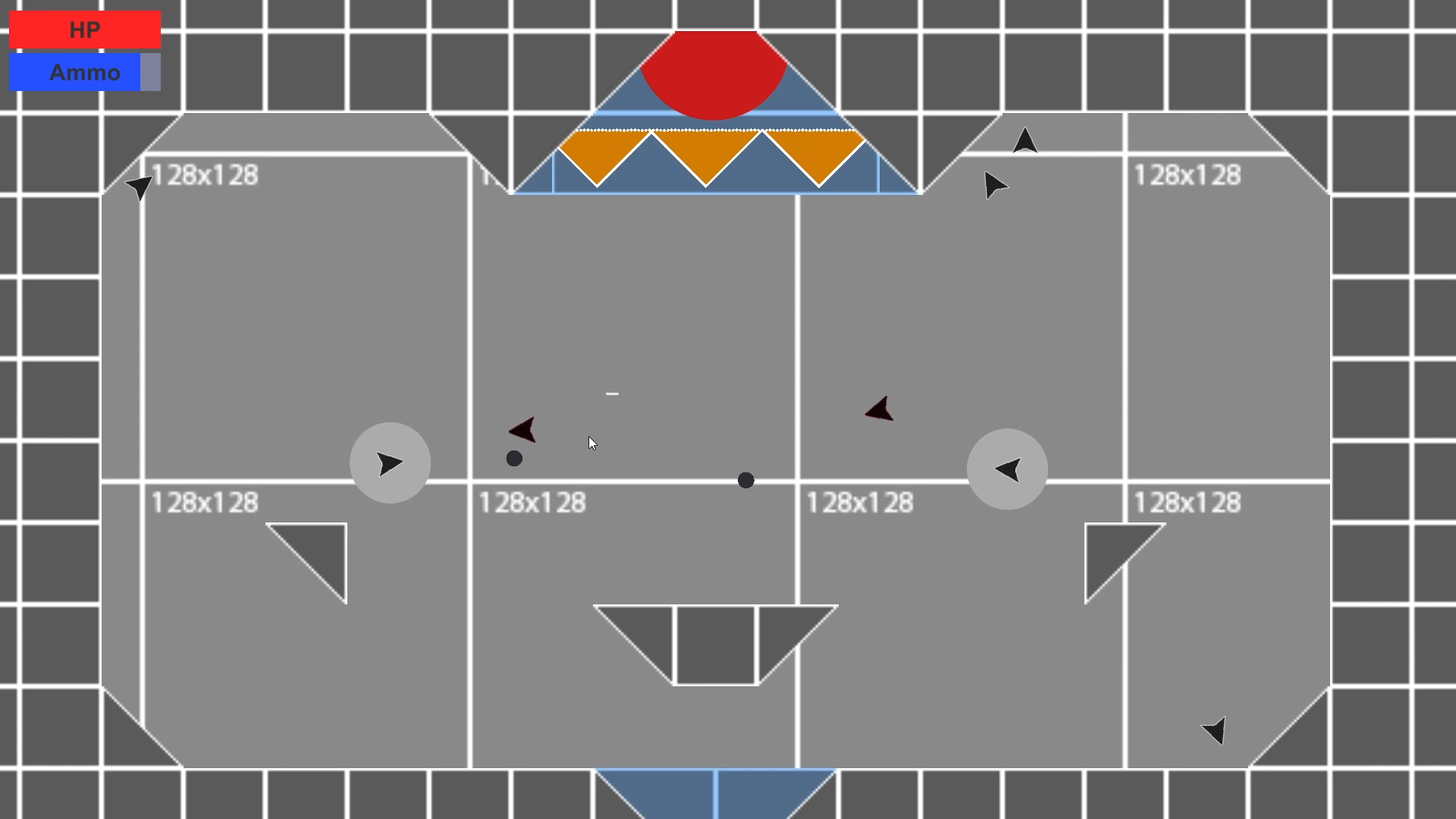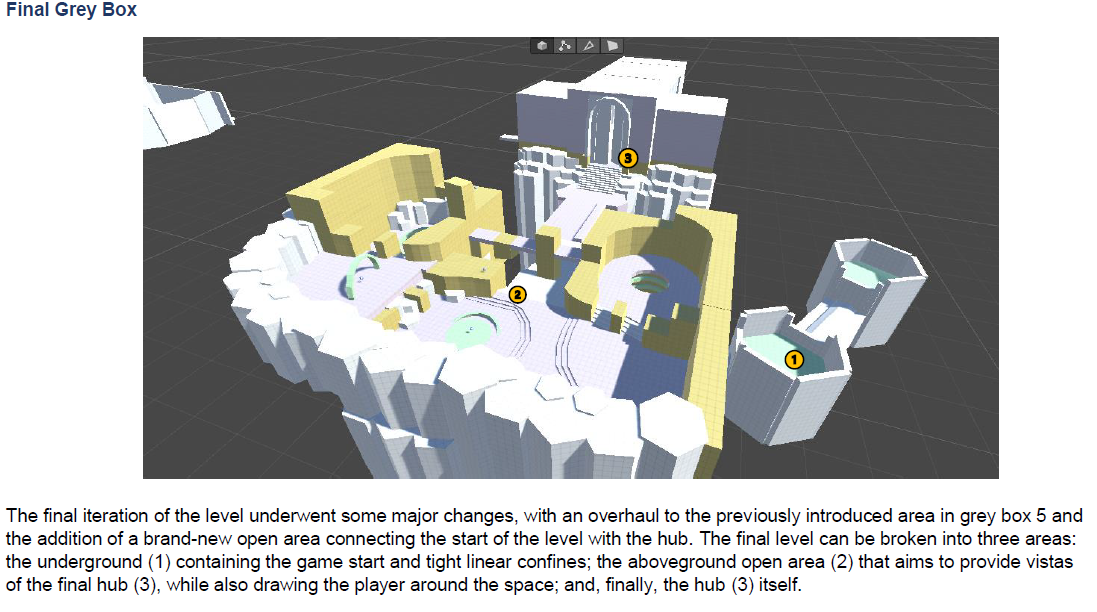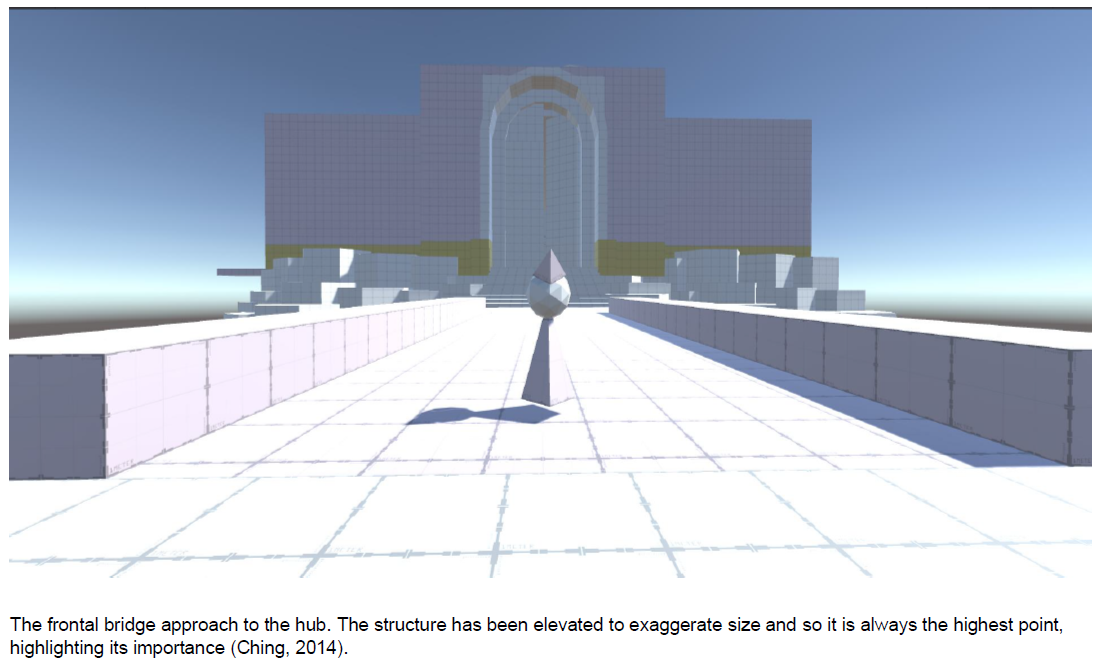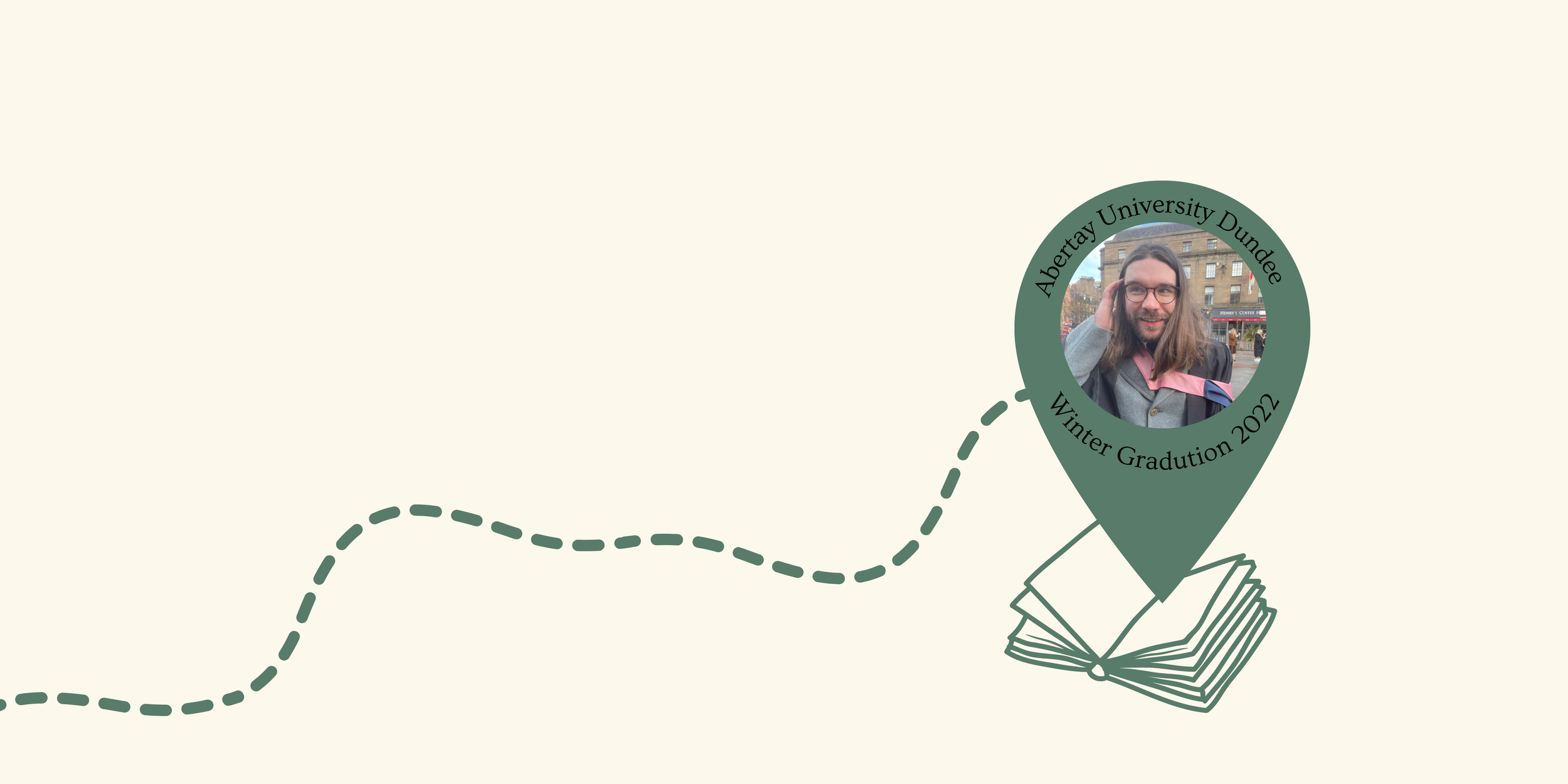
About The Developer
A friendly, creative game-maker with experience in game design and production management.
I started my game development journey in 2016 and haven’t looked back. I adore coming up with fun and novel levels and gameplay for players while working alongside diverse and talented teams.
Having worked on 2 shipped games and backed up with the academic excellence of Abertay University, I'm ready to join your team and give back to our wonderful community!

Shipped Titles
Portfolio Content
A Bonnie Odyssey
A Colourful open world puzzle game
Project highlights
This project was my first freelance contract, and I couldn’t have wished for a better client. Astrodreamer is a team of Abertay alums; it’s always exciting to see fellow grads making their way in the field. Check them out; they're out of this world!
My Role: Level Designer
Studio: Astrodreamer Studio
Genre/ Style: Open-world puzzle game
Engine: Unreal Engine 5
Platform: PC (Steam).
Released: Coming 2024
Responsibilities
Designed and developed levels in Unreal Engine 5.
Authored level design documentation, wireframes, level layout plans and greyboxes.
Carefully curated levels to be accessible from the open world in any order while maintaining narrative flow.
Cooperated with the internal team to assist in developing puzzle and narrative elements.
Synopsis
A Bonnie Odyssey is an open world puzzle game set on a Scottish island. Follow Zoe and a cast of charming robotic companions as she explores the island and solves a time-bending mystery.
Bonnie Odyssey Narrative Trailer
Tools used
Environment- Unreal Engine 5 (c++ & blueprint). Due to the size of Bonnie Odyssey, Unreal’s new world partition system was used to full effect to optimise the performance of the large open world.
Documentation- Google Docs & Miro. I created a full suite of documents from Miro wireframes detailing every level’s flow to Google Docs explaining individual elements and decisions made and sheets detailing the status of each level.
Layouts and plans- Photoshop. I always use digital or paper to sketch out and plan my levels and ideas. Here, I elected Photoshop for speed and ease of sharing.
Source control- Github. Bonnie Odyssey had roughly 20 developers and artists working on the game. GitHub saw near-constant action as part of the day-to-day work.
Home
Outreach adventure game for Dundee carers
Project highlights
Both clients warmly received the game, and we were given the opportunity to showcase Home and our process at the I2I partner meeting held in Dundee. Home remains in use by Dundee Carers and used within classrooms and workshops.
My Role: Designer and Production Manager
Client: Dundee Carers, I2I
Genre/ Style: Cozy Adventure Game/ Outreach Tool
Engine: Unreal Engine 4
Platform- PC, Mobile.
Released: 11/2019
Responsibilities
Gameplay and level designer within a cross-disciplinary team.
Helping to maintain and nurture the team’s vision through flowcharts, system requirements, personalized objectives, and open discussions.
Close collaboration with the art team to create a visually appealing and exciting game space.
Acted as a liaison between team, client, and young carers.
Personally Showcased at the I2I partner meeting held in Dundee.
Synopsis
Home is a light-hearted 3D life simulation that follows the daily responsibilities of Deer, a young career. Help Deer care for their little sibling, Bear, and parent Fallow. Showing both the struggles and positives of being a young carer.
A short walk though of Home
Tools Used
Environment- Unreal Engine 4 (c++ & blueprint). While a lightweight mobile game, we choose UE4 for its easy-to-use blueprints and brilliant assist pipeline to make the best use of our artist team.
Greyboxing- Maya & UE4. I used Maya for many of the initial greyboxs to allow artists to work in a familiar environment and streamline the process.
Visual documentation- Draw I.o & Google Docs. I adore Visual documentation as a dyslexic; it’s so much more effective than solid walls of text, and my team agreed. For Home, I created a single elegant wireframe that detailed each requirement and its connection to the whole. This was used for quick and easy reference alongside more traditional documentation.
Management- Trillo & Google Sheets. Trillo was our go-to management software for the project, allowing us to keep track of milestones and requirements.
Hack Mech
Level Design Study
My Role: Solo developer
Genre/ Style: Top-Down Action
Engine: Unity
Platform- PC
Submission date: 11/2019
Responsibilities
Research of narrative structures in media and tutorial-level design principles.
Design of gameplay mechanics and level layouts.
Development of critical Themes across two levels and a final boss fight.
Organisation of playtesting and collating feedback.
Feedback implementation.
Synopsis
A twin-stick shooter with some light Metroidvania elements. It emulates the opening moments of a complete game and features the ability to move, fight, solve puzzles and take control of your enemies.
Project highlights
A rewarding study into the application of narrative structures in level design pacing and an opportunity to research and apply renowned designer’s methodologies to my work.
Original walkthrough video submission for Abertay.
Tools Used
Environment- Unity (C#). Unity and C# are my go-to for personal projects; they’re light, quick, and have plug-ins for everything. In this project, I used a simple 2D sprit sheet for greyboxing and the fantastic Cinemachine plug-in for the camera.
Planing- lots of paper. From rough sketches to full-level layouts, I really enjoy working with paper and pen; while Photoshop and Illustrator are more convenient, I’m always glad I can quickly sketch out a convincing idea on paper.
Responsibilities
Solo development of playable experience within Unity.
Independent cross-disciplinary research into architecture.
Analyze existing architectural works both within and outside of games.
Designing and iterating playable game spaces both on paper and in the engine.
The collection of findings and used processes into an honours dissertation.
Synopsis
Final undergrad research and development project exploring the use of architectural theory applied to game spaces. Including transitions, counterpoints, sightlines, and signposting.
Project Highlights
Developing skills to create accurate architectural tech drawings carried over to level layouts and maps.
Video walk though submission
Tools used
Architectural drafts- pen & paper. Much of my work on this project revolved around creating accurate and useful architectural drawings of game environments and levels. I went through a small forest of paper, but it resulted in a deeper appreciation of what makes a useful layout.
Research- I read a lot of architectural literature for this project but the highlight had to be Frederick’s 101 Things I Learned in Architecture School, Ching’sArchitecture: Form, Space, and Order and gameing’s own Totten’s An Architectural Approach to Level Design.
Honours Project
Game Architectural Dissertation
My Role: Solo developer
Genre/ Style: adventure puzzle
Engine: Unity
Platform- PC
Submission date: 4/2022
Padly
Group Project
My Role: UI Designer
Genre/ Style: Adventure Platformer
Engine: Unity
Platform- PC
Submission date: 12/2018
Responsibilities
Design and implementation of UI elements and menus.
Directly collaborated with the game artists to design UI elements for the game.
Creation of paper prototypes of menus.
I worked within a cross-disciplinary team to create an original concept.
Facilitating design discussions via the use of mindmaps.
Synopsis
A laid-back 3-D character platform starring Padly the Frog with a focus on exploration and interactions with light-hearted characters.
Project highlights
Padly marked my first opportunity to work in a team of over three people for a prolonged period. While early in my personal development as a designer, the project sparked a love for working alongside a team that I hold to this day.
Demo walkthough
Tools Used
Prototyping- paper. I seldom get to make paper prototypes, but they are one of the funniest and potentially most useful tools a game developer can use. A hands-on demo with a paper prototype can be more effective than any form of documentation at conveying an idea or, at the very least, a great team-building experience.

